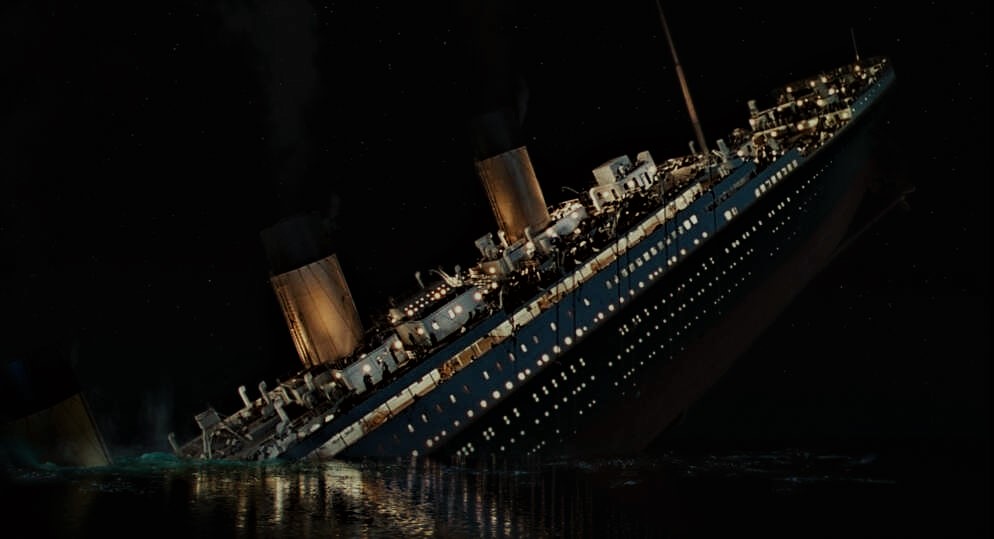Explore the depths of time:A Journey Through Ocean Historical Facts
Covering more than 70% of the Earth’s surface, the oceans have played an important role in shaping the course of human history
Over the centuries, civilizations have built up near the coast, maritime trade has flourished, and legendary voyages have led to the exploration of the unknown
This article delves into the historical facts of the ocean, highlighting its profound impact on human society and how it continues to shape our world
1 Early Oceanic Civilizations
Thousands of years ago, ancient civilizations such as the Egyptians, Mesopotamians, and Phoenicians recognized the importance of the sea
They developed sophisticated nautical techniques and nautical vessels to facilitate trade and communication across distant lands
The Nile, Tigris, Euphrates, and the Mediterranean all played important roles in the development of these early maritime civilizations
2 Age of Discovery:
The 15th century and the 16th century ushered in the Age of Discovery, propelled by the search for new trade routes and the discovery of new lands
Explorers like Christopher Columbus, Vasco da Gama, and Ferdinand Magellan ventured into vast, uncharted waters, paving the way for global exploration and colonization
The ocean has become a gateway to new possibilities and expanded the horizons of human knowledge
3 The Triangular Trade and the Transatlantic Slave Trade:
The sea has also witnessed dark chapters of history, such as the Triangular Trade and the Atlantic Slave Trade
European powers transported slaves from Africa to America and traded them for commodities such as sugar, tobacco, and cotton
This cruel system profoundly affected the lives of millions and shaped the economic foundations of the colonial nations
4 Naval Battles and Conflicts:
The ocean has been the scene of naval battles throughout history. Famous naval battles such as the Battle of Salamis (480 BC), the Battle of Trafalgar (1805), and the Battle of Midway (1942) changed the course of nations and affected the balance of power on a global scale
Naval hegemony was an important factor in the rise and fall of empires.
Five Marine science and research:
From the 19th century to the 20th century, marine science and oceanography was the focus of attention
Expeditions like the HMS Challenger (1872-1876) broadened our understanding of marine life, geology, and oceanography
Using cutting-edge technology, deep-sea exploration continues to make fascinating discoveries, from unexplored ecosystems to sunken ancient civilizations
6 Environmental Impact and Environmental Protection:
The history of the ocean is linked to human behavior, resulting in significant environmental problems.
Overfishing, pollution, and climate change are severely impacting marine ecosystems, threatening biodiversity and coastal livelihoods.
Conservation efforts and the establishment of marine protected areas are essential to safeguarding the delicate balance of the ocean
7 Modern Maritime Trade and Communications:
Even in modern times, the sea remains an important route for international trade.
Ships transport goods around the world, and submarine cables enable global communication via the Internet.
The ocean’s role in the global economy and communication networks is unprecedented.
8 Ancient Nautical Culture:
In addition to famous civilizations such as the Egyptians and Phoenicians, several other ancient cultures had skilled seafarers.
Polynesians, for example, navigated the vast expanse of the Pacific Ocean, relying solely on the stars, currents, and the migration of birds.
Their remarkable voyages allowed them to settle islands as far afield as Hawaii, New Zealand, and Easter Island.
9 Vikings:
During the Viking Age (from the 8th century to the 11th century), Scandinavian sailors, the so-called Vikings, explored and raided distant lands.
They established trade routes across Europe, reaching as far as Russia and Constantinople.
The Vikings’ shipbuilding and nautical proficiency greatly influenced Nordic maritime history.

10 Seaside Silk Road:
The land Silk Road is known for its role in connecting East and West, but a maritime version of the Silk Road also flourished.
The ancient Maritime Silk Road facilitated trade between China, Southeast Asia, the Indian subcontinent, the Middle East, and Africa, facilitating cultural exchanges and economic growth.
11 Marine research and mapping:
Ocean exploration has brought great advances in cartography. Ancient maps and nautical charts became more and more accurate as explorers documented their findings and charted coastlines, currents, and trade routes.
Pioneering cartographers like Gerardus Mercator in the 16th century revolutionized cartography by drawing spherical earth on a flat surface.
12 Underwater Archeology:
The sea is home to countless sunken treasures and shipwrecks from different historical periods.
Underwater archaeology has shed light on ancient navigational techniques, trade networks, and maritime hazards.
Notable discoveries include the remains of ancient ships, sunken harbors, and ancient harbors.
13 Maritime Law System:
The development of the Law of the Sea and the Convention on the Law of the Sea have contributed to the regulation of international maritime affairs.
The Law of the Rhodian Sea is one of the earliest maritime laws known, with its origins dating back to ancient Greece.
Currently, the United Nations Convention on the Law of the Sea (UNCLOS) regulates the use and protection of the ocean.
14 Ocean exploration and circumnavigation:
In addition to famous explorers like Magellan, many other ocean settlers embarked on a circumnavigation of the globe, expanding their knowledge of the geography of the earth.
It is worth noting that the first woman to achieve this feat was Jeanne Barré, who in the 18th century disguised herself as a man and joined the expedition of Louis-Antoine de Bougainville.
15 The sea in mythology and culture:
Throughout history, the ocean has been of great cultural significance. It is prominent in myths, legends, and religious beliefs
From the ancient sea gods of Greek mythology to the water gods of many other cultures, the sea has been both revered and feared as a symbol of life, creation, and eternity.
- Ocean Literature and Art: Countless pieces of prose, poetry, and visual art have been produced as a result of the ocean. The ocean’s size, strength, and beauty have captured human imagination throughout history, from classic books like Herman Melville’s “Moby-Dick” to the seascapes of J.M.W. Turner and Winslow Homer.
- Space and Ocean Exploration: Surprisingly, ocean exploration has a lot to do with space discovery. Oceanographic research was employed by NASA’s Apollo program, which resulted in the moon landing, to better understand life support systems, astronaut survivability, and other topics. Additionally, astronauts received training in aquatic environments to prepare them for life and work in space.
Conclusion
The sea has been an integral part of human history.
It shaped the rise and fall of civilizations, enabled exploration and discovery, and influenced trade and communication networks.
As we continue to navigate the oceans of the 21st century, it is of utmost importance to understand and respect the historical importance of the oceans to ensure their conservation and sustainable use for future generations. Cherish his past and work together to protect his future.
Several aspects show that the historical importance of the ocean extends beyond its role in trade and exploration.
It has shaped culture, inspired creativity, and contributed to human space exploration.
The ocean has had a profound impact on human history, and its enduring relevance has made it a subject of constant fascination and exploration.





